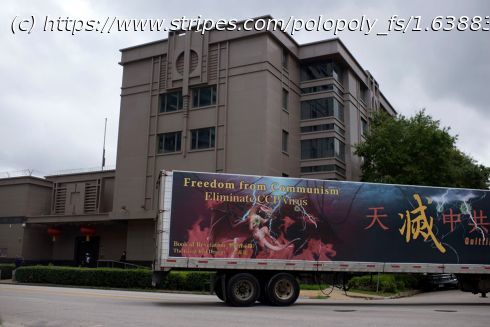While two Chinese citizens were convicted in the past year for trying to steal trade secrets in America’s energy capital, three administration officials briefing reporters on Friday said the sum total of activity conducted through the Houston consulate represented the « tip of the iceberg » when it comes to concerns about China.
WASHINGTON (Tribune News Service) — The Trump administration’s decision to shutter the Chinese consulate in Houston followed years of frustration about criminal and covert activity directed by Beijing to steal trade secrets and carry out malign influence operations across the U. S. While two Chinese citizens were convicted in the past year for trying to steal trade secrets in America’s energy capital, three administration officials briefing reporters on Friday said the sum total of activity conducted through the Houston consulate represented the « tip of the iceberg » when it comes to concerns about China. Highlighting the scope of the challenge, the FBI currently has about 2,000 active cases related to Chinese counterintelligence operations in the U. S., one official on the call said. But by couching the Houston closure as the result of years of work, officials sought to separate their decision from current tensions over everything from the coronavirus pandemic to Beijing’s increasing control over Hong Kong. Instead, the U. S. seeks to send a broader signal that it will be less patient about Chinese efforts to conduct espionage, particularly on economic and intellectual property issues. That shift is partly the result of U. S. policy increasingly being led by hardliners inside the Trump administration, including Secretary of State Mike Pompeo. « For the foreseeable future, Chinese government IP theft and foreign influence efforts will be treated not just as individual criminal matters or disagreements over economic policy but as issues of national security and strategic affairs, » said Sumon Dantiki, a former federal cyber-crime prosecutor and senior counselor to the director of the FBI.
Home
United States
USA — Political Years of Chinese espionage is what prompted consulate closing, US says






